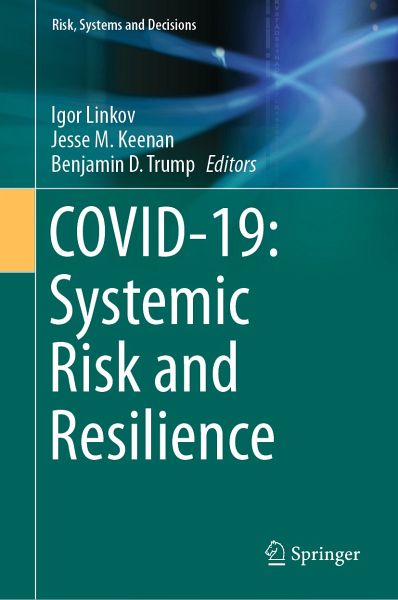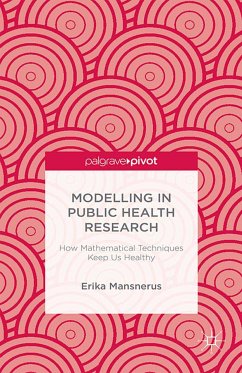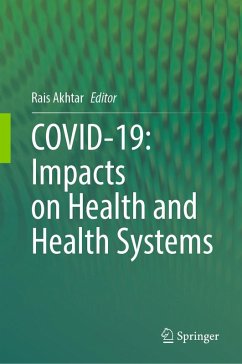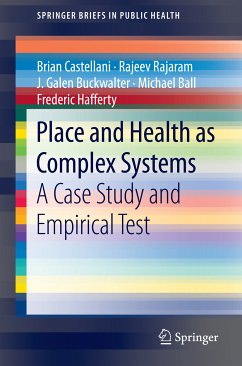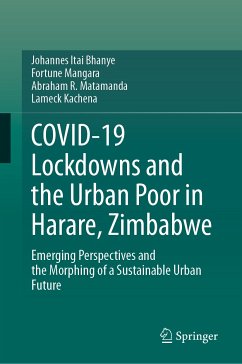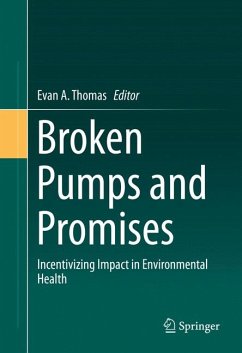Dr. Igor Linkov is Senior Science and Technology Manager with the US Army Engineer Research and Development Center (ERDC), and Adjunct Professor with Carnegie Mellon University. He is responsible for ERDC's project portfolio in the areas of crises management and resilience. Dr. Linkov has managed multiple risk and resilience assessments and management projects in many application domains, including emerging risks, climate change, energy, supply chain, homeland security and defense, cybersecurity, and critical infrastructure. He developed methods and tools for measuring resilience in interconnected network and applied these tools to manage response and recovery in complex systems, including following COVID pandemic. Dr. Linkov has organized more than thirty national and international conferences and continuing education workshops. He has published widely on environmental policy, climate change, and risk and resilience analysis, including twenty five books and over 400 peer-reviewed papers and book chapters in top journals, like Nature, Nature Nanotechnology, Nature Climate Change, among others. Dr. Linkov is Elected Fellow with the American Association for the Advancement of Science (AAAS) and Society for Risk Analysis. Dr. Linkov received multiple awards for his scientific achievements, including the Top DOD Scientist Award in 2020. Dr. Linkov has a B.S. and M.Sc. in Physics and Mathematics (Polytechnic Institute) and a Ph.D. in Environmental, Occupational and Radiation Health (University of Pittsburgh). He completed his postdoctoral training in Risk Assessment at Harvard University. Dr. Jesse M. Keenan is an Associate Professor of Real Estate and social scientist within the faculty of the School of Architecture at Tulane University in New Orleans, Louisiana. Keenan's research focuses on the intersection of climate change adaptation andthe built environment, including aspects of design, engineering, regulation, planning and financing. Keenan has previously advised on matters concerning the built environment for agencies of the U.S. Government, governors, mayors, Fortune 500 companies, technology ventures, community enterprises and international NGOs. Keenan formerly served as the Area Head for Real Estate and Built Environment on the faculty of the Harvard Graduate School of Design; Fellow of Science, Technology and Public Policy at the Harvard Kennedy School of Government; and, as the Research Director of the Center for Urban Real Estate on the faculty of the Graduate School of Architecture, Planning and Preservation at Columbia University. Keenan is currently a Visiting Scholar at the Perry World House at the University of Pennsylvania. Keenan is the author of ¿NYC 2040: Housing the Next One Million New ¿Yorkers (Columbia University Press, 2014) and ¿Climate Adaptation Finance and Investment ¿in California (Routledge, 2018), which was awarded Amazon's 'Best Of' Award for "The Best Business and Leadership Books of 2018." Keenan is the co-editor of the books, ¿Blue Dunes: Climate Change by Design ¿(2n¿d Edition)(Columbia University Press, 2017), ¿North American Climate Adaptation: Fostering Resilience and a Regional Capacity to Adapt (Springer, 2017), and ¿Managing Climate Risk in the U.S. Financial System ¿(CFTC, 2020). Keenan is the also the co-author of a variety of design research monographs, including, ¿Mobility Oriented Design: The Case for Miami's Metrorail (Office of Urbanization, Harvard Graduate School of Design, 2019); ¿Adapting Miami ¿(Harvard Graduate School of Design, 2020), and ¿Multiple Miamis (Harvard Graduate School of Design, 2020). Keenan serves as Of Counsel to the law firm of Hinshaw & Culbertson, LLP and as an advisor to SiliconValley technology firm of Jupiter Intelligence. Keenan holds degrees in the law (J.D., LL.M.) and science (M.Sc.) of real estate and the built environment, including a Ph.D. From the Delft University of Technology. Dr. Benjamin D. Trump is a Research Social Scientist for the U.S. Army Corps of Engineers. Dr. Trump's work focuses on decision making and governance of activities under significant uncertainty, such as emerging and enabling technologies (synthetic biology, nanotechnology) and developing organizational, infrastructural, social, and informational resilience against systemic threats to complex interconnected systems. Dr. Trump served as a delegate to assist U.S. presence in OECD's Global Science Forum in 2017, and was the President of the Society for Risk Analysis' Decision Analysis and Risk Specialty Group in 2018-2019, as well as its Resilience Analysis Specialty Group in 2019-2020. He was selected as aFellow of the Emerging Leaders in Biosecurity Initiative, Class of 2019. In December 2019, Dr. Trump was installed as the Treasurer-Elect of the Society for Risk Analysis. Dr. Trump was also a contributing author of the International Risk Governance Council's Guidelines for the Governance of Systemic Risks, as well as their 2nd Volume of the Resource Guide on Resilience. Dr. Trump is also frequently active with several Advanced Research Workshops for the North Atlantic Treaty Organization's Science for Peace Programme, including his role as co-Coordinator with Kamrul Hossain of an Advanced Research Workshop titled Cybersecurity and Resilience for the Arctic (which serves as the inspiration for this book). Co-authored with Dr. Igor Linkov, Dr. Trump's book The Science and Practice of Resilience (2019) includes a detailed discussion of the methodological, philosophical, and governance-related work behind the concept of resilience. His follow-up book with Dr. Myriam Merad, ¿Expertise Under Scrutiny ¿(2020), addresses the challenges facing decision makers of how to construct and implement scientifically formed and institutionally valid decisions within an environment of heightened uncertainty and public criticism. Dr. Trump received his Ph.D. from the University of Michigan's School of Public Health, Department of Health Management and Policy in 2016. He received an M.S. (2012) in Public Policy and Management and a B.S. in Political Science (2011) from Carnegie Mellon University.
